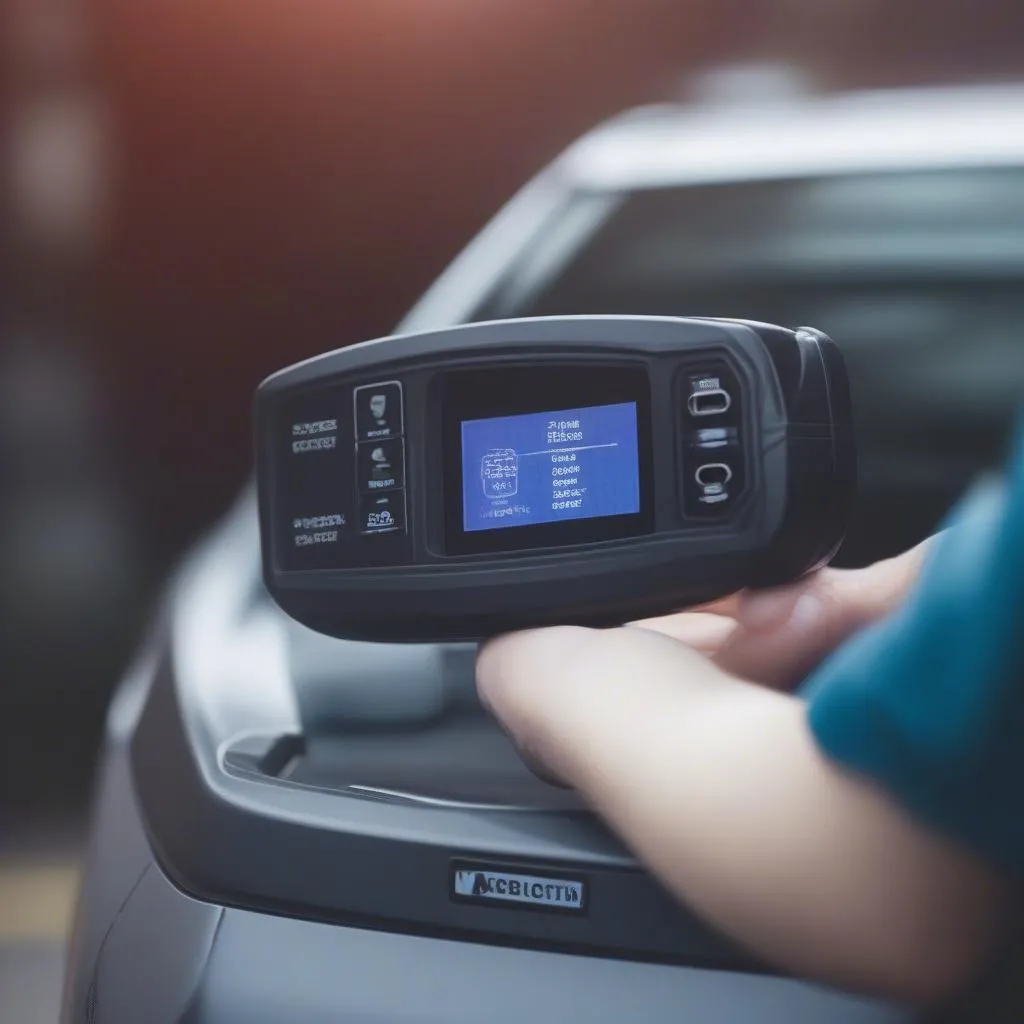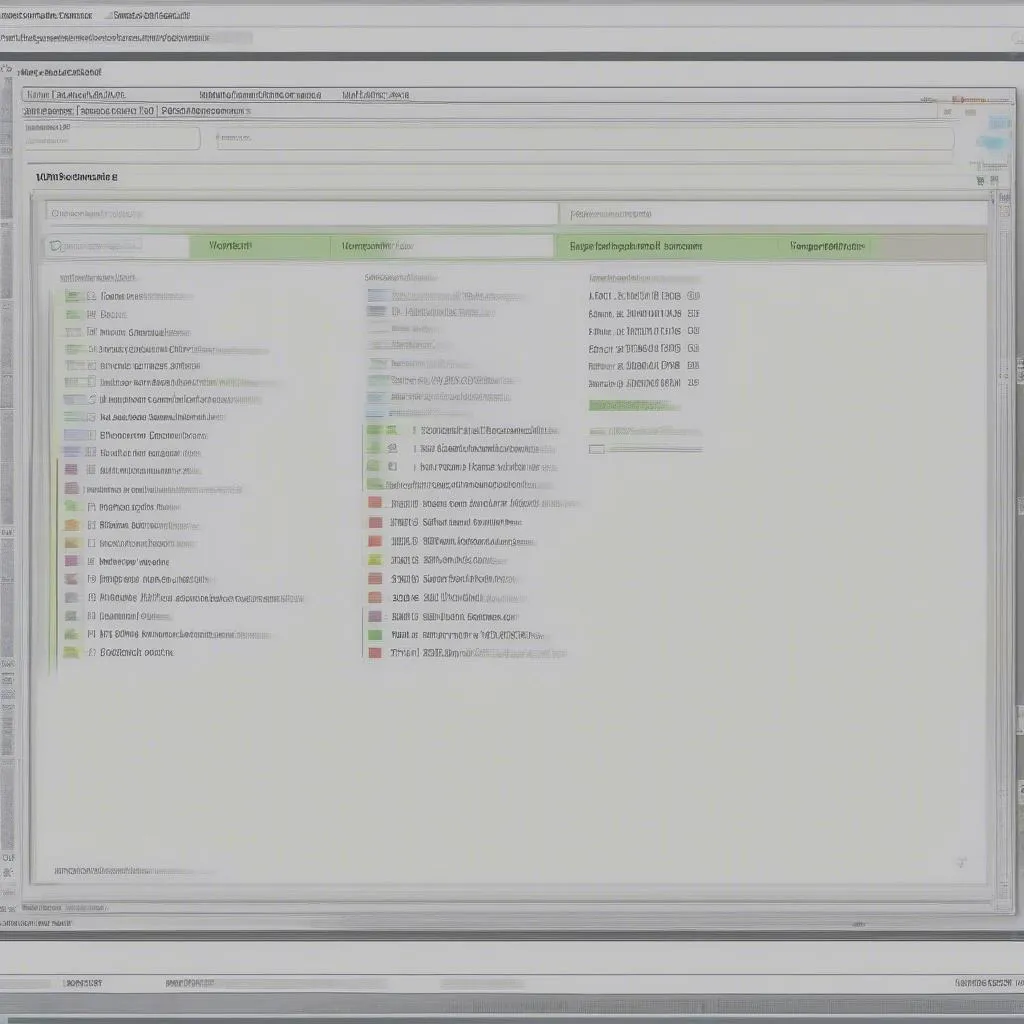Have you ever found yourself staring at your car’s dashboard, wondering what those blinking lights mean? Or maybe you’ve experienced a strange noise or a sudden drop in performance, leaving you stranded and frustrated. These situations, while frustrating, are common and can be easily resolved with the help of a diagnosis scan.
What is a Diagnosis Scan?
A diagnosis scan is a process used by mechanics to identify problems with your car’s electronic systems. It involves connecting a scan tool to the vehicle’s onboard diagnostic port (OBD-II port), which allows the tool to communicate with the car’s computer. The scan tool retrieves diagnostic trouble codes (DTCs) from the car’s computer, which indicate specific problems or malfunctions.
The Significance of Diagnosis Scans
From the perspective of an auto mechanic:
Diagnosis scans are essential for efficiently and accurately identifying problems. Imagine trying to diagnose a patient’s illness without the help of medical scans or tests. It’s like trying to solve a puzzle without all the pieces! Diagnosis scans provide vital clues about the underlying causes of a car’s malfunction, saving time and money for both the mechanic and the car owner.
From the perspective of car technology:
Diagnosis scans are a testament to the advancement of automotive technology. Modern vehicles rely heavily on sophisticated electronic systems, and diagnosis scans allow mechanics to delve into these systems and understand their intricacies.
From the perspective of car owners:
Diagnosis scans are crucial for maintaining the health of your vehicle and preventing costly repairs. Just like regular checkups are important for our health, diagnosis scans help identify potential issues before they escalate into major problems.
Understanding Diagnosis Scans: A Deeper Dive
How Does a Diagnosis Scan Work?
- Connecting the scan tool: The mechanic connects a scan tool to the vehicle’s OBD-II port, typically located under the dashboard.
- Communicating with the car’s computer: The scan tool sends and receives information from the car’s computer, allowing it to access the vehicle’s diagnostic information.
- Retrieving diagnostic trouble codes: The scan tool retrieves DTCs, which are codes that indicate specific malfunctions or problems. These codes are standardized across different car manufacturers, making them universally understandable.
- Interpreting the codes: The mechanic interprets the DTCs and uses them to identify the source of the problem.
What Can a Diagnosis Scan Reveal?
A diagnosis scan can reveal a wide range of issues, including:
- Engine problems: Misfires, fuel system malfunctions, sensor issues, etc.
- Transmission problems: Shifting issues, slipping gears, etc.
- ABS and Brake System issues: ABS light on, brake issues, etc.
- Airbag problems: Airbag warning light, malfunctioning sensors, etc.
- Electrical system problems: Battery issues, wiring problems, etc.
Common Questions About Diagnosis Scans
Q: How often should I get a diagnosis scan?
A: It’s recommended to get a diagnosis scan at least once a year, or more frequently if you notice any unusual symptoms in your car.
Q: What if the scan tool doesn’t find any codes?
A: If no codes are found, it doesn’t necessarily mean there’s no problem. There might be intermittent issues that aren’t detected by the scan tool, or the problem could be related to a component not covered by the scan tool’s capabilities.
Q: Can I perform a diagnosis scan myself?
A: While some scan tools are available for home use, it’s generally recommended to have a professional mechanic perform the scan. They have the expertise to interpret the results and make accurate diagnoses.
Q: How much does a diagnosis scan cost?
A: The cost of a diagnosis scan can vary depending on the mechanic, the location, and the type of scan tool used. It’s generally a relatively affordable service.
Diagnosis Scan: A Necessity for Modern Vehicles
As car technology continues to evolve, diagnosis scans are becoming increasingly crucial for keeping our vehicles running smoothly. By providing valuable insights into a car’s electronic systems, diagnosis scans empower mechanics to diagnose and repair issues efficiently, saving time, money, and frustration for car owners.
To learn more about different types of scan tools, check out these resources:
- Foxwell OBD Scanner
- Auto Scan Tool for Fuel System Diagnosis
- Wireless Scan Tool
- Using a Scan Tool for Transmission Diagnosis
- Autel Scan Tool with ABS Bleed
Do you have any further questions about diagnosis scans? Leave a comment below, and we’ll be happy to answer!
 Diagnosis Scan Tool
Diagnosis Scan Tool
 OBD-II Port
OBD-II Port
 Diagnostic Trouble Codes
Diagnostic Trouble Codes
Don’t hesitate to reach out to us via Whatsapp: +84767531508 if you need help with setting up your diagnostics tool! We have expert mechanics available 24/7 to assist you.